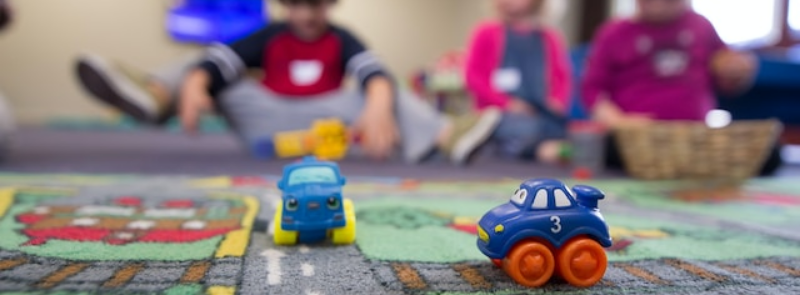
When It Occurs
Every April 21st
Timeline
Days Passed (1038)
# Hashtags
#NationalKindergartenDay #PlayfulLearning
Prepare for a joyful celebration of National Kindergarten Day on April 21! This special day commemorates the initiation of a child's educational journey, marking the beginning of their school and learning experience. It also honors the contributions of those who have dedicated themselves to children's education, including parents, teachers, administrators, and more. Rooted in history since 1837 when Friedrich Froebel introduced kindergarten in Germany, this delightful occasion now acknowledges and celebrates children worldwide as they embark on their academic endeavors.
The History of Kindergarten
The word "kindergarten" comes from the German words "kinder," meaning "children," and "garten," meaning "garden." Friedrich Fröbel, born on April 21, 1782, believed that young children should be nurtured and cared for in a way similar to how plants are tended to in a garden. He saw early education as a way to cultivate children's minds and spirits, preparing them for the future.
Fröbel opened the first kindergarten in 1837 in Bad Blankenburg, Germany. His approach emphasized learning through play, creativity, and social interaction, which were revolutionary ideas at the time. He introduced activities such as singing, dancing, and the use of educational toys (which he called "gifts") to help children explore and learn about the world around them.
The kindergarten concept quickly spread throughout Europe and eventually made its way to the United States in the mid-19th century. The first American kindergarten was established in Watertown, Wisconsin, in 1856 by Margarethe Schurz, a German immigrant who was influenced by Fröbel's work. The idea gained popularity, and by the late 19th century, kindergartens had become an integral part of the American educational system.
The Importance of Kindergarten
Kindergarten serves as a critical bridge between home and formal education. It provides children with their first experience of structured learning in a group setting, helping them develop essential social, emotional, and cognitive skills. The early years of a child's life are a period of rapid brain development, making kindergarten an important time for fostering curiosity, creativity, and a love of learning.
Key Benefits of Kindergarten:
-
Socialization: Kindergarten provides children with opportunities to interact with peers, learn to share, cooperate, and resolve conflicts. These social skills are crucial for their future academic and personal success.
-
Early Literacy and Numeracy: In kindergarten, children are introduced to basic literacy and numeracy concepts, such as letters, sounds, numbers, and counting. These foundational skills are essential for later learning in reading, writing, and mathematics.
-
Development of Fine and Gross Motor Skills: Activities like drawing, cutting, and playing with building blocks help children develop fine motor skills, while physical activities like running, jumping, and playing on playground equipment enhance gross motor skills.
-
Emotional Development: Kindergarten helps children develop emotional regulation, self-confidence, and independence. It teaches them to manage their feelings, make decisions, and build resilience.
-
Creative Expression: Through art, music, and imaginative play, kindergarten encourages children to express themselves creatively, explore their interests, and develop a sense of identity.
How to Celebrate National Kindergarten Day
-
Honor Educators: Take the time to recognize and appreciate the hard work and dedication of kindergarten teachers. They play a vital role in shaping young minds and laying the foundation for lifelong learning. A simple thank-you note or small gift can go a long way in showing your gratitude.
-
Engage in Kindergarten Activities: Parents and caregivers can celebrate the day by engaging in activities that reflect the spirit of kindergarten. This could include playing educational games, reading stories, doing arts and crafts, or visiting a local park for outdoor play.
-
Reflect on Early Education: National Kindergarten Day is also an opportunity to reflect on the importance of early childhood education. Consider how you can support and advocate for quality early education in your community, whether through volunteering, donating, or raising awareness about the benefits of kindergarten.
-
Share Memories: Share your own kindergarten memories with family and friends, or ask others about their experiences. This can be a fun way to reminisce about the joys and challenges of those early school days.
-
Visit a Kindergarten Classroom: If you have a child in kindergarten or know a kindergarten teacher, consider visiting a classroom to see firsthand the activities and learning that take place. It’s a great way to connect with the educational journey of young children.
Fun Facts About Kindergarten
-
The First Kindergarten in the U.S.: The first American kindergarten was established by Margarethe Schurz in 1856 in Watertown, Wisconsin. It was conducted in German, reflecting the language of the local immigrant community.
-
Kindergarten as a Public Institution: Elizabeth Peabody opened the first English-speaking kindergarten in the United States in Boston in 1860. Her work helped to promote kindergarten as a public institution, eventually leading to its inclusion in the public school system.
-
Global Spread: The kindergarten concept has been adopted worldwide, with variations depending on cultural and educational practices. In many countries, kindergarten is considered an essential part of early childhood education.
-
Play-Based Learning: Fröbel’s emphasis on play-based learning continues to influence early childhood education today. Play is recognized as a powerful tool for learning, helping children develop problem-solving skills, creativity, and social competence.
The Legacy of Friedrich Fröbel
Friedrich Fröbel’s vision of education as a nurturing, playful, and child-centered experience has had a lasting impact on early childhood education. His principles of learning through play, the importance of creativity, and the value of social interaction are still central to kindergarten programs around the world.
National Kindergarten Day is a celebration of Fröbel’s legacy and a recognition of the important role that kindergarten plays in a child's development. It’s a day to appreciate the educators who dedicate their lives to teaching young children and to acknowledge the significance of providing a strong educational foundation in the early years.


